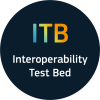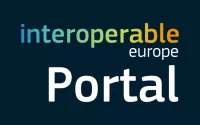
A new milestone release (1.9.0) is now available for the Test Bed’s RDF, XML, JSON and CSV validators.

Release 1.9.0 is now the latest available milestone release for the Test Bed’s RDF, XML, JSON and CSV validators. Milestone releases complement the validators’ continuous delivery model that provide rapid access to latest changes, by offering stable versions for users operating self-hosted validators on their own infrastructure. The highlights of this latest release are summarised below.
Domain aliases
All validators add support for migrating across different validator instances through domain aliases. This feature allows an existing validator to be seamlessly replaced by another, ensuring that existing users using the old validator are automatically served by the new one. Besides covering the renaming of single validators, this feature makes it possible to merge several validators that are technically distinct but conceptually related, into a new one for a more consolidated user experience.
Management of remotely loaded validation resources
The XML and RDF validators have been updated with extensive options for the management of remote resources. Such resources are typically imported schemas from remote URIs in the case of XML, and OWL imports in the case of the RDF. New configuration options for both XML and RDF validators now make it possible to:
- Preload remote resources at startup to avoid lookups during validation, and to detect early-on broken references.
- Optionally cache loaded resources to avoid repeated lookups.
- Add local file mappings for resource URIs to retrieve them locally.
Besides optimising how remote resources are retrieved, these new configuration options also make it possible to use validators in environments where network access is restricted, while avoiding remote resource lookups.
Registration in the EU Open Source Catalogue
All validators now feature a publiccode.yml descriptor documenting their features and metadata. Besides recording standardised open-source project metadata, this allows the validators to be registered with the EU Open Source Solutions Catalogue on the Interoperable Europe Portal.

Furthermore, as of release 1.9.0 and as a complement to their existing GitHub repositories, the validators’ source code is also published on code.europa.eu, the code development platform for EU Institutions’ open source projects.
Minor improvements
Besides its main highlights, this release also includes additional minor improvements:
- The XML validator can now gracefully handle remote schema references from a single remote schema as a starting point.
- The XML validator now supports including a simplified XPath expression as the location for reported validation findings.
- The XML validator now supports XSLT functions and resource lookups when using Schematron rules in “pure” format.
- Reported error messages are now more informative in the case of the XML validator when relating to Schematron format limitations.
- Log messages were optimised to remove unnecessary noise during monitoring.
- Multiple third party libraries were upgraded, to benefit from their latest patches.
- Several minor bugs reported by users were resolved.
The full list of improvements and bug fixes is available in each validator’s change history documentation (see for RDF, XML, JSON and CSV).
Validator release references
The table below provides the relevant reference links for each validator. For the detailed list of updates introduced by the latest release check the change history links.
| Validator | Docker Hub image | Documentation links |
|---|---|---|
| RDF validator | isaitb/shacl-validator | RDF validation guide | Change history |
| XML validator | isaitb/xml-validator | XML validation guide | Change history |
| JSON validator | isaitb/json-validator | JSON validation guide | Change history |
| CSV validator | isaitb/csv-validator | CSV validation guide | Change history |
Remember that you can automatically receive updates for new milestone releases by either subscribing to the Test Bed community and configuring your notification preferences, or by subscribing to the validators’ GitHub repositories.
Find out more
Further information on the Test Bed's validators, as well as step-by-step usage and configuration instructions, are available in their respective validation guides (for XML, RDF, JSON, CSV and YAML). General details on the Test Bed's services and use cases can be found in the Interoperable Europe Portal, with its value proposition being a good starting point for newcomers. To receive updates on Test Bed news and releases remember to subscribe to the Test Bed on the Portal, and to follow Interoperable Europe’s updates on X and LinkedIn.
The Interoperability Test Bed is a service provided by the European Commission’s DIGIT, offering conformance testing and validation solutions in support of IT systems’ cross-border interoperability.
Referenced solution









